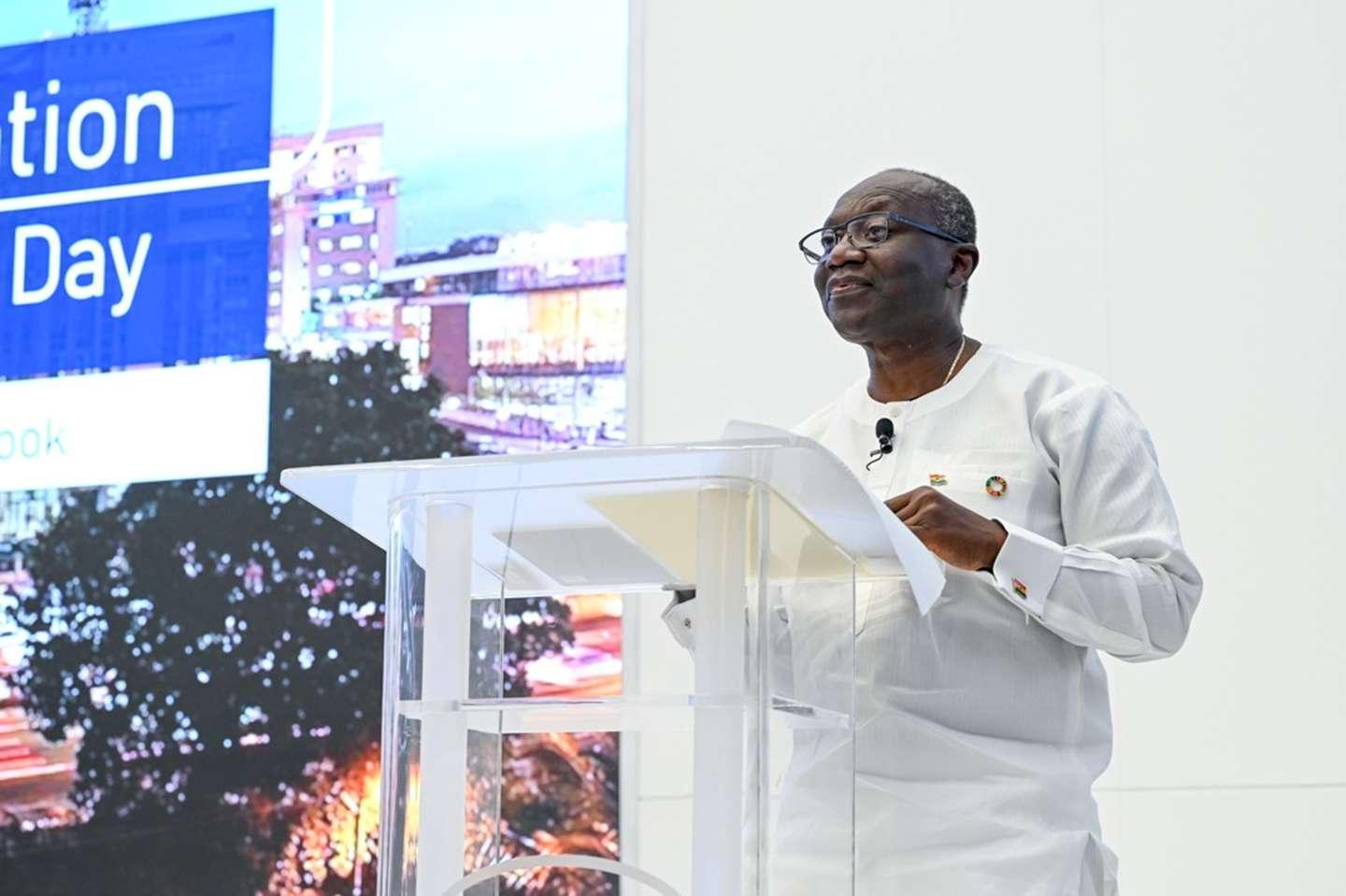
2 minute read
Finance Minister to woo private sector with Mutual Prosperity Dialogue ..
A plan by government dubbed the ‘Ghana Mutual Prosperity Dialogue’ that will provide a platform to identify and prioritise private sector participation and court investments into the country as part of economic recovery is expected to be outdoored soon, Finance Minister, Ken Ofori-Atta, has disclosed.
Ghana, one of the world's biggest producers of both gold and cocoa, is su ering its worst economic crisis in a generation, with the price of goods rising at an average of 41% over the past year.
Advertisement
The West African country has just signed a new bailout programme with the International Monetary Fund (IMF) worth $3bn (£2.4bn) over three years to help ease the problems and has received the rst tranche of $600m.
Mr. Ofori-Atta told participants and potential investors during day one of MTN Group’s Capital Markets Day in Johannesburg, South Africa that government wants to engage the private sector to stimulate growth.
“To ensure a deeper understanding of the needs of the private sector and drive the needed economic growth, government is setting up the Ghana Mutual Prosperity Dialogue as an anchor to engage the private sector at the respective industry levels to ensure sector looking policies to re ect aspirations of industry people.
How do we work with industry people given that the gap between our savings and investments is high and to listen to the investor community and take the requisite steps to create a more competitive transparent and attractive business landscape, he asked?”
The minister provided insights into Ghana’s macro-economic prospects to a group of MTN investors where he outlined the future prospects of Ghana, including the bene ts and importance of the recently signed agreement with the IMF.
He Minister indicated that Ghana is "seeking partnerships to enable us to crystallise our ambitions of being the seed country for Africa's economic and development renaissance."
Ghana’s nance minister also added that the country is not ‘out of the woods yet’, however, the various elements of economic reform programme are expected to provide the grounding for a more stable outlook.
The minister, and his accompanying delegation included Mr. Reginald Yo Grant, CEO of the Ghana Investment Promotion Centre (GIPC) and Mr. Solomon Asamoah, the CEO of the Ghana Infrastructure Investment Fund (GIIF) who participated in the panel on Ghana's economic health, prospects, and opportunities at the event.
The three (3) year US$3bn PC-PEG-backed IMF ECF Programme aims to restore macroeconomic stability and debt sustainability supported by wide-ranging and strong structural reforms to build resilience and lay the foundation for stronger and more inclusive growth, while protecting the poor and vulnerable.
The programme is also expected to signi cantly slow the rate of in ation and ensure a stable local currency. All of this will bene t ordinary Ghanaians through stable prices of basic commodities including imported ones.
It has been considered risky to lend money to Ghana, but with the new IMF programme it should mean that the country can borrow again to implement its policies.
Development partners, including the World Bank, have promised to help the country come out of its economic quagmire, while investors are now likely to return without fear of losing their money.
However, if past experience is anything to go by, this cash injection from the IMF will not necessarily solve the country's long-term economic problems.
Ghana only exited the last IMF programme in 2019 and is already asking for more money.






